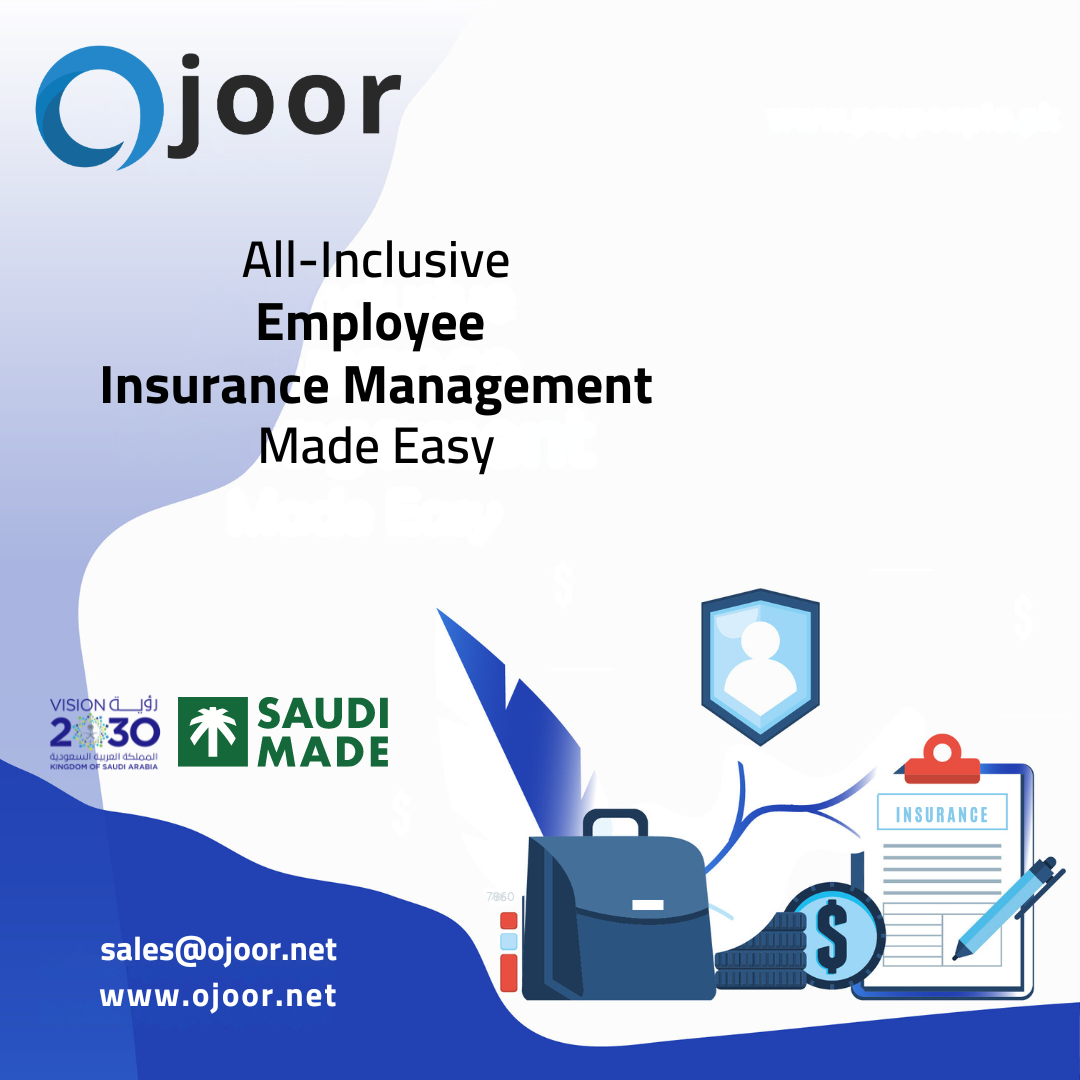Ojoor # 1 is one of the top HR System in Saudi Arabia must adhere to stringent regulatory requirements to ensure compliance with local labor laws, data protection regulations, and cultural norms. These regulatory considerations significantly influence the design, implementation, and operation of HR systems in the Kingdom. This article explores the key regulatory considerations for HR systems in Saudi Arabia, examining legal frameworks, data privacy requirements, and cultural sensitivities that shape HR practices in the country.
Click to Start Whatsapp Chatbot with Sales
Mobile: +966547315697
Email: sales@Ojoor.net
Ojoor #1 HR System in Saudi Arabia

What are the key regulatory for HR System in Saudi Arabia?
Saudi Labor Laws and Regulations
Compliance with Saudi labor laws is paramount for the HR System in Saudi Arabia operating in the Kingdom. These laws govern various aspects of employment, including recruitment, contracts, working hours, leaves, and termination procedures. HR systems must incorporate provisions of the Saudi Labor Law, such as employee entitlements, end-of-service benefits, and dispute resolution mechanisms, to ensure that organizational practices align with legal requirements and mitigate the risk of non-compliance.
General Data Protection Regulation
While Saudi Arabia does not have specific data protection legislation, organizations operating in the Kingdom are subject to international data protection standards, including the General Data Protection Regulation (GDPR). HR systems must comply with GDPR principles regarding the collection, processing, storage, and transfer of personal data to protect employee privacy rights and prevent unauthorized access or disclosure of sensitive information.
Saudi Arabian Data Protection Law
The Saudi Arabian Data Protection Law (SDPL), expected to be enacted soon, will introduce comprehensive data protection regulations for organizations operating in the Kingdom. HR systems must align with SDPL requirements related to data privacy, consent management, data localization, cross-border data transfers, and breach notifications. Compliance with SDPL will be essential to safeguard employee data and mitigate legal and reputational risks associated with data breaches or non-compliance.
Ministry of Human Resources and Social Development Regulations
The Ministry of Human Resources and Social Development (MHRSD) oversees HR practices and regulations in Saudi Arabia. HR System must comply with MHRSD regulations concerning employment contracts, wage protection, Saudization quotas, and labor market initiatives. Integration with MHRSD portals and systems facilitates regulatory reporting, compliance audits, and communication with government authorities, ensuring adherence to labor regulations and employment standards.

What are the key regulatory for HR System in Saudi Arabia?
Wage Protection System
The Wage Protection System (WPS) mandates that employers in Saudi Arabia pay employee salaries through authorized financial institutions and submit payroll data electronically to the Saudi Arabian Monetary Authority (SAMA). HRMS in Saudi Arabia must comply with WPS regulations by generating electronic salary files (SADAD files) and facilitating direct salary transfers to employees’ bank accounts. Integration with banking systems and WPS portals streamlines payroll processing and ensures compliance with payment regulations.
Saudization and Nationalization Initiatives
Saudization, also known as Nitaqat, is a government initiative aimed at increasing the employment of Saudi nationals in the private sector. HR systems must support Saudization initiatives by tracking Saudization quotas, reporting Saudization percentages, and facilitating the recruitment and development of Saudi talent. Compliance with Saudization regulations is crucial for organizations to maintain their operating licenses and access government contracts in Saudi Arabia.
Cultural Sensitivities and Sharia Compliance
LMS training operating in Saudi Arabia must respect cultural sensitivities and adhere to Islamic principles in HR practices. Sharia compliance influences various aspects of HR, including gender segregation, dress codes, religious holidays, and ethical considerations. HR systems should accommodate cultural diversity, promote inclusivity, and respect religious beliefs and practices to foster a harmonious work environment and comply with cultural norms.
Expatriate Work Permit and Residence Regulations
For organizations employing expatriate workers in Saudi Arabia, HR systems must manage work permits, residency visas, and immigration documentation in compliance with regulations set by the Saudi General Directorate of Passports (Jawazat) and the Ministry of Foreign Affairs (MOFA). HR systems should streamline the visa application process, track residency statuses, and ensure timely renewal of work permits to prevent legal and immigration issues for expatriate employees.
Conclusion
Navigating regulatory compliance is a critical consideration for HR systems operating in Saudi Arabia. Organizations must ensure that their HR systems comply with Saudi labor laws, data protection regulations, government initiatives, and cultural norms to mitigate legal risks, uphold employee rights, and maintain business integrity. By integrating regulatory requirements into HR systems and implementing robust compliance measures, organizations can establish a framework for responsible HR practices and achieve sustainable growth in the Kingdom’s dynamic business environment.
Click to Start Whatsapp Chatbot with Sales
Mobile: +966547315697
Email: sales@Ojoor.net
HR System in Saudi Arabia
HR System in Saudi Arabia
HR System in Saudi Arabia
What are the key regulatory for HR System in Saudi Arabia? similar software solutions prices were updated on 2024-04-27T09:24:10+00:00 in Saudi Arabia in Mecca, Medina, Riyadh, Khamis Mushait, Yanbu, Jeddah, Dammam, Unaizah, Uqair, Ha’il, Ta if, Al Bahah, Dhahran, King Abdullah Economic City, Najran, Diriyah, Qatif, Khafji, Jubail, Abqaiq, List of Cities and Towns in Saudi Arabia, Ras Tanura, Turubah, Jazan Economic City, Knowledge Economic City, Medina, Khobar, Abha, Tabuk, Saudi Arabia, similar software solutions prices were updated on 2024-04-27T09:24:10+00:00 We also provide in Saudi Arabia services solutions company in Hafar Al-Batin, Udhailiyah, Al-Awamiyah, Hofuf, Hautat Sudair, Buraidah, Tayma, Duba, ‘uyayna, Saihat, Al-Kharj, Al-ula, Jizan, Rumailah, Ar Rass, Arar, Shaybah, Al Majma’ah, Rabigh, Dhurma, Haradh, List of Saudi Cities by Gdp Per Capita, Badr, Sudair Industrial City, Baljurashi, Shaqraa, Al-Khutt, Habala, Ad Dawadimi, Dawadmi, Layla, similar software solutions prices were updated on 2024-04-27T09:24:10+00:00 Price is SAR 100 and this was updated on updated on 2024-04-27T09:24:10+00:00 similar What are the key regulatory for HR System in Saudi Arabia? software solutions prices were updated on 2024-04-27T09:24:10+00:00 in Saudi Arabia in Haql, Afif, Al-Abwa, Farasan, Al-Jaroudiya, Thadig, Al-Thuqbah, Al Wajh, Almardmah, Al-Zilfi, Muzahmiyya, Prince Abdul Aziz Bin Mousaed Economic City, Tharmada’a, Skaka, Um Al-Sahek, Sharurah, Tanomah, Bisha, Dahaban, Al Qunfudhah, Qurayyat, Saudi Arabia, Ha’ir, as Sulayyil, Al Lith, Turaif, Al-Gway’iyyah, Samtah, Wadi Ad-Dawasir, Az Zaimah, Safwa City, Jalajil, Harmah, Mastoorah, Hotat Bani Tamim, Jabal Umm Al Ru’us, Rafha, Qaisumah, Al-Ghat, Hajrah, Al-Hareeq. Excerpt: Jeddah (also spelled Jiddah, Jidda, or Jedda; Arabic: Jidda) is a Saudi Arabian city located on the coast of the Red Sea and is the major urban center of western Saudi Arabia similar software solutions prices were updated on 2024-04-27T09:24:10+00:00 Price is SAR 100 and this was updated on updated on 2024-04-27T09:24:10+00:00
27-3-2024



